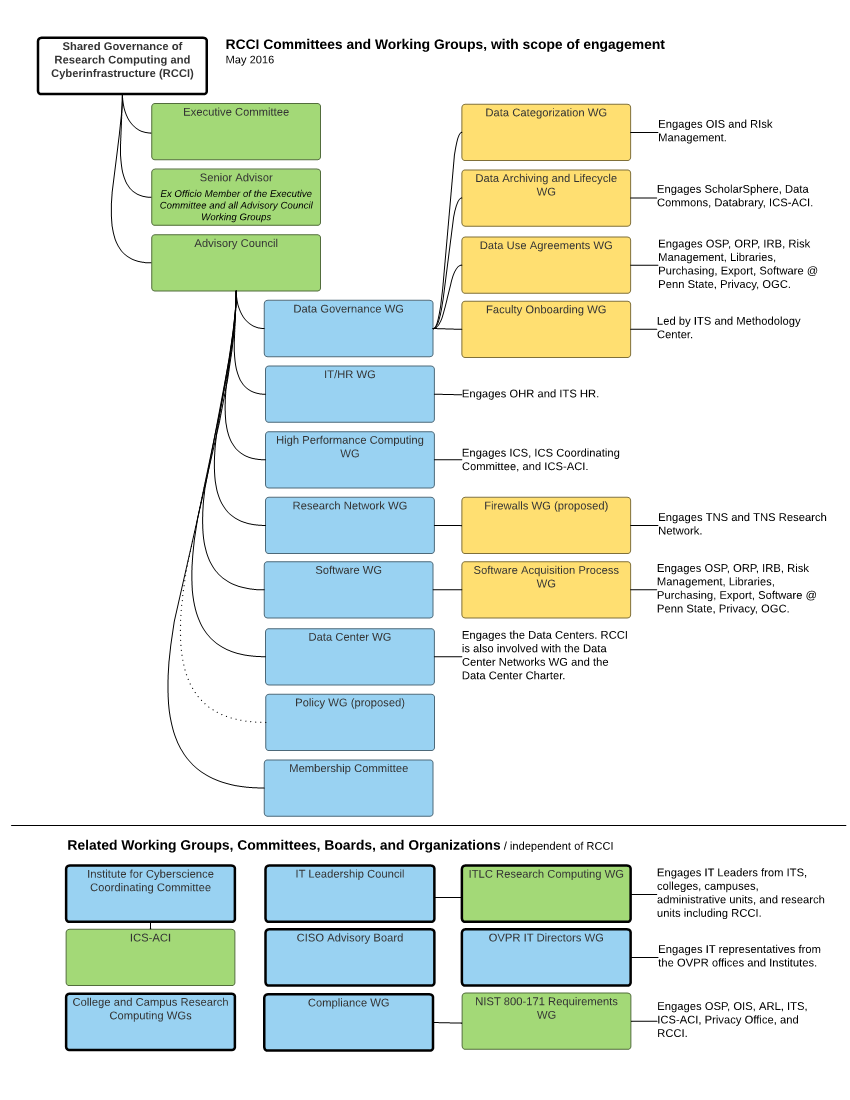The RCCI Working Group meetings have been set for the fall 2018 semester. They are as follows:
| Group | Day/Time | Location |
| High Performance Computing | Mondays – 10/15, 11/19, 12/17 @ 10:00 am – 11:30 am | W306B MSC |
| Communications & Onboarding | Wednesdays – 10/24, 11/28, 12/12 @ 3:30 pm – 5:00 pm | W306B MSC |
| Research Project Life Cycle | Tuesdays – 10/16, 11/13, 12/11 @ 3:30 pm – 5:00 pm | W306B MSC |
| Cognitive and Immersive Technologies | Mondays – 10/22, 11/26, 12/17 @ 3:00 pm – 4:30 pm | W306B MSC |
| Advanced Research Computing Support | Wednesdays – 10/17, 11/21, 12/10 @ 10:30 am – 12:00 pm | W306 MSC |
A reminder that all Working Group meetings are open to all interested Penn State parties.

